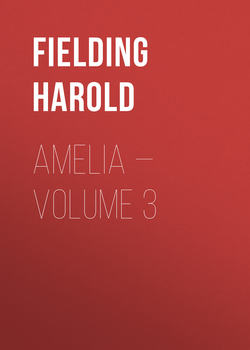Читать книгу Amelia — Volume 3 - Генри Филдинг, Fielding Harold - Страница 10
BOOK IX
Chapter X
A curious conversation between the doctor, the young clergyman, and the young clergyman's father
ОглавлениеThe next morning, when the doctor and his two friends were at breakfast, the young clergyman, in whose mind the injurious treatment he had received the evening before was very deeply impressed, renewed the conversation on that subject.
"It is a scandal," said he, "to the government, that they do not preserve more respect to the clergy, by punishing all rudeness to them with the utmost severity. It was very justly observed of you, sir," said he to the doctor," that the lowest clergyman in England is in real dignity superior to the highest nobleman. What then can be so shocking as to see that gown, which ought to entitle us to the veneration of all we meet, treated with contempt and ridicule? Are we not, in fact, ambassadors from heaven to the world? and do they not, therefore, in denying us our due respect, deny it in reality to Him that sent us?"
"If that be the case," says the doctor, "it behoves them to look to themselves; for He who sent us is able to exact most severe vengeance for the ill treatment of His ministers."
"Very true, sir," cries the young one; "and I heartily hope He will; but those punishments are at too great a distance to infuse terror into wicked minds. The government ought to interfere with its immediate censures. Fines and imprisonments and corporal punishments operate more forcibly on the human mind than all the fears of damnation."
"Do you think so?" cries the doctor; "then I am afraid men are very little in earnest in those fears."
"Most justly observed," says the old gentleman. "Indeed, I am afraid that is too much the case."
"In that," said the son, "the government is to blame. Are not books of infidelity, treating our holy religion as a mere imposture, nay, sometimes as a mere jest, published daily, and spread abroad amongst the people with perfect impunity?"
"You are certainly in the right," says the doctor; "there is a most blameable remissness with regard to these matters; but the whole blame doth not lie there; some little share of the fault is, I am afraid, to be imputed to the clergy themselves."
"Indeed, sir," cries the young one, "I did not expect that charge from a gentleman of your cloth. Do the clergy give any encouragement to such books? Do they not, on the contrary, cry loudly out against the suffering them? This is the invidious aspersion of the laity; and I did not expect to hear it confirmed by one of our own cloth."
"Be not too impatient, young gentleman," said the doctor." I do not absolutely confirm the charge of the laity; it is much too general and too severe; but even the laity themselves do not attack them in that part to which you have applied your defence. They are not supposed such fools as to attack that religion to which they owe their temporal welfare. They are not taxed with giving any other support to infidelity than what it draws from the ill examples of their lives; I mean of the lives of some of them. Here too the laity carry their censures too far; for there are very few or none of the clergy whose lives, if compared with those of the laity, can be called profligate; but such, indeed, is the perfect purity of our religion, such is the innocence and virtue which it exacts to entitle us to its glorious rewards and to screen us from its dreadful punishments, that he must be a very good man indeed who lives up to it. Thus then these persons argue. This man is educated in a perfect knowledge of religion, is learned in its laws, and is by his profession obliged, in a manner, to have them always before his eyes. The rewards which it promises to the obedience of these laws are so great, and the punishments threatened on disobedience so dreadful, that it is impossible but all men must fearfully fly from the one, and as eagerly pursue the other. If, therefore, such a person lives in direct opposition to, and in a constant breach of, these laws, the inference is obvious. There is a pleasant story in Matthew Paris, which I will tell you as well as I can remember it. Two young gentlemen, I think they were priests, agreed together that whosoever died first should return and acquaint his friend with the secrets of the other world. One of them died soon after, and fulfilled his promise. The whole relation he gave is not very material; but, among other things, he produced one of his hands, which Satan had made use of to write upon, as the moderns do on a card, and had sent his compliments to the priests for the number of souls which the wicked examples of their lives daily sent to hell. This story is the more remarkable as it was written by a priest, and a great favourer of his order."
